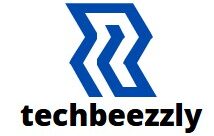
Introduction to the Influence of HR on Workplace Productivity
The intricate relationship between Human Resources (HR) services and workplace productivity cannot be understated. Modern HR services are the lifeblood of any organization, ensuring that the most valuable assets—the employees—are equipped, motivated, and aligned with business objectives. The evolution of HR practices from administrative tasks to strategic initiatives has profoundly affected how businesses operate. Strong HR practices lay the groundwork for a high-functioning workplace by streamlining processes, nurturing talent, and fostering a culture prioritizing productivity without sacrificing well-being.
Strategic HR Management and Organizational Performance
Strategic HR management serves as a bridge between employee performance and organizational goals. A well-constructed HR strategy aligns the workforce with the unique objectives and challenges of the business, translating into measurable outcomes. Effective HR leaders apply a mix of proactive workforce planning, clear communication, and a comprehensive understanding of business needs to unlock potential and maximize output throughout the organization. Strategic HR management is pivotal in sculpting high-performing teams, from refining job roles to optimizing team structures.
The Transformative Power of HR Technology
Technology has been a driving force in the metamorphosis of HR into a productivity powerhouse. By automating routine tasks, data-driven decision-making has enabled HR professionals to focus on more complex, value-adding activities. Integrated HR systems streamline everything from payroll and benefits administration to recruitment and employee onboarding, offering a smoother, more efficient experience for employees and HR personnel. These systems save time and reduce the likelihood of errors that can disrupt workplace productivity and employee satisfaction.
Redefining Performance Management for Enhanced Productivity
Traditional performance management models are replaced with dynamic, continuous feedback systems overseen by HR. These systems allow for regular check-ins, goal adjustments, and developmental discussions that help employees stay aligned with company objectives and know their performance trajectory. HR services directly promote a high-performance culture by setting clear expectations and providing the tools for self-improvement.
Cultivating a Productive Workplace Culture
A robust and positive workplace culture acts as the underpinning for employee engagement and productivity. HR’s role in shaping this culture—through clear communication of values, recognition programs, and opportunities for collaboration—cannot be overstated. Additionally, fostering an environment where feedback is sought and valued leads to continuous improvement and innovation. HR efforts to maintain a culture that supports risk-taking, teamwork, and constant learning create an atmosphere where employees can perform at their best.
Employee Engagement and Its Impact on Productivity
Enhanced employee engagement has been consistently linked to increased productivity levels. HR strategies prioritizing employee engagement—such as transparent communication, fair performance evaluations, and ample growth opportunities—result in a more committed and motivated workforce. HR initiatives to keep morale high, like wellness programs or career development events, contribute greatly to a vibrant organizational energy that propels productivity. Engaged employees perform better and are more likely to innovate and contribute to the company’s growth.
Efficient Talent Acquisition and Its Role in Productivity
The acquisition of top talent is a direct contributor to organizational productivity. HR’s ability to attract, vet, and onboard the right candidates quickly and efficiently impacts performance. From leveraging social media for recruitment to sophisticated applicant tracking systems, HR services have advanced to ensure that the hiring process is both candidate-friendly and effective in securing the best talent for the company. Efficient talent acquisition fills vacancies quicker and aligns new hires with the company’s strategic vision, setting the stage for productive integration.
Maximizing Employee Potential Through Training and Development
Continuous investment in employee training and development is a strategic move by HR that bears significant fruit in terms of productivity. Offering tailored learning opportunities and career-pathing initiatives enables employees to improve their skills and expand their capabilities. This enhances their current job performance and prepares them for future roles and challenges within the company. By actively developing their workforce, HR ensures that the organization remains agile, skilled, and equipped to meet evolving market demands.
Fostering Employee Well-Being for Sustained Productivity
Employee well-being is inextricably linked to workplace productivity. HR’s advocacy for a balanced approach to work that includes mental health support, stress management, and sufficient downtime ensures that employees can sustain high performance over time. Comprehensive well-being programs engage employees at various levels, supporting their physical, mental, and emotional health, thus preventing burnout and boosting overall workplace morale and productivity.
Ensuring Legal Compliance to Avoid Productivity Pitfalls
Staying abreast of employment laws and regulations is a crucial aspect of HR that directly affects productivity, as non-compliance can lead to costly disruptions. HR professionals are vital in maintaining legal compliance, conducting regular audits, keeping policies up-to-date, and safeguarding the company from legal issues. A company secure in its compliance can maintain uninterrupted productivity and focus on innovation and growth.
Leveraging HR Analytics for Strategic Decision-Making
HR analytics offers a powerful tool for understanding and improving workplace productivity. By analyzing data on employee performance, turnover, and engagement, HR professionals can identify areas for improvement and measure the impact of HR initiatives. This evidence-based approach enables data-informed strategies that cater to an organization’s unique productivity challenges and opportunities.
Preparing for the Future Workplace and Its Productivity Demands
The workplaces of the future promise to be more dynamic and demanding, and HR services must evolve accordingly. Preparing employees for emerging technologies, new work models, and shifting cultural expectations are all within HR’s purview. By staying agile, embracing innovation, and fostering a forward-looking mindset among the workforce, HR ensures that the organization is not just productive today but is primed to excel in the future.
